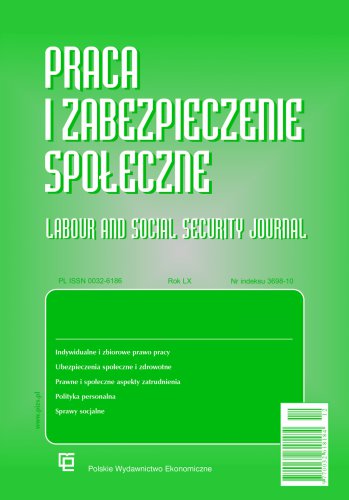Labour and Social Security Journal 02/2023
ISSN: 0032-6186
Pages: 67
Publication date: 2023
Place publication: Warszawa
Binding: paperback
Format: A4
Publication date: 2023
Place publication: Warszawa
Binding: paperback
Format: A4
DOI: 10.33226/0032-6186.2023.2.2
JEL: K31
DOI: 10.33226/0032-6186.2023.2.3
JEL: K31
DOI: 10.33226/0032-6186.2023.2.4
JEL: K10, K30, K40
DOI: 10.33226/0032-6186.2023.2.5
JEL: K31
DOI: 10.33226/0032-6186.2023.2.6
JEL: K31
DOI: 10.33226/0032-6186.2023.2.7
JEL: K31
DOI: 10.33226/0032-6186.2023.1.8
JEL: K31
DOI: 10.33226/0032-6186.2023.2.9
| Odbiór osobisty | 0 € |
| Kurier Inpost | 4 € |
| Kurier FedEX | 4 € |
| Inpost Paczkomaty | 4 € |
| Free delivery in Reader's Club | from 47 € |

